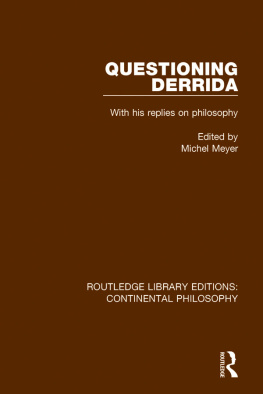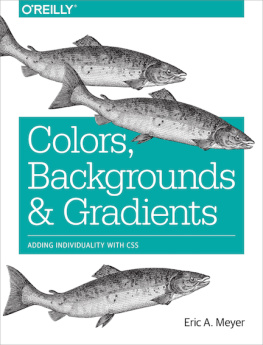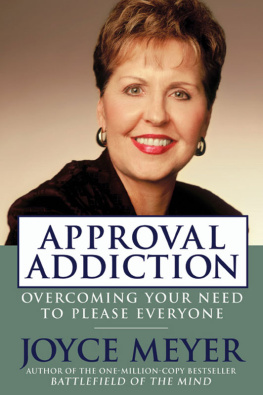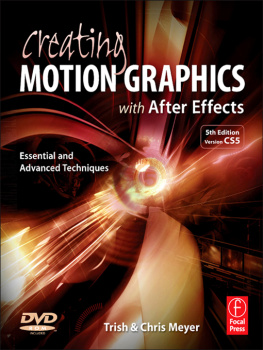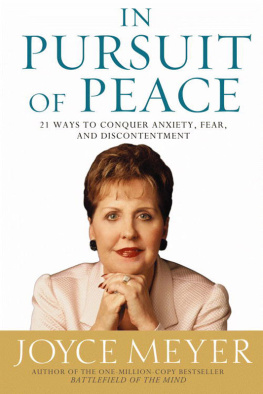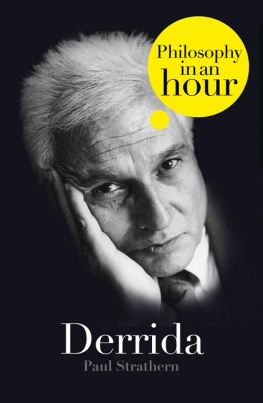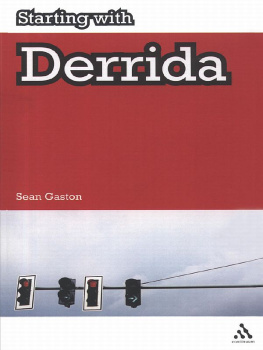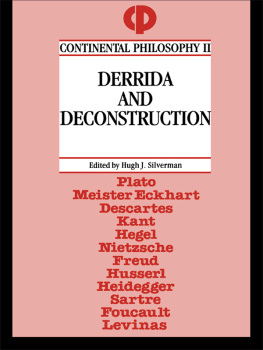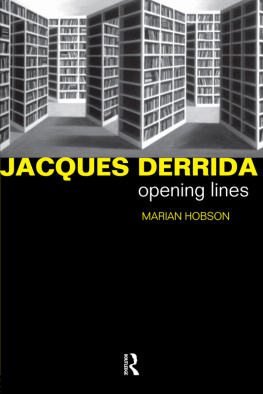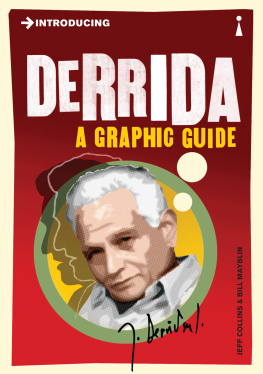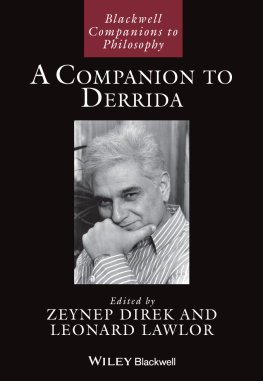Meyer - Questioning Derrida
Here you can read online Meyer - Questioning Derrida full text of the book (entire story) in english for free. Download pdf and epub, get meaning, cover and reviews about this ebook. year: 2017, publisher: Routledge, genre: Religion. Description of the work, (preface) as well as reviews are available. Best literature library LitArk.com created for fans of good reading and offers a wide selection of genres:
Romance novel
Science fiction
Adventure
Detective
Science
History
Home and family
Prose
Art
Politics
Computer
Non-fiction
Religion
Business
Children
Humor
Choose a favorite category and find really read worthwhile books. Enjoy immersion in the world of imagination, feel the emotions of the characters or learn something new for yourself, make an fascinating discovery.
Questioning Derrida: summary, description and annotation
We offer to read an annotation, description, summary or preface (depends on what the author of the book "Questioning Derrida" wrote himself). If you haven't found the necessary information about the book — write in the comments, we will try to find it.
Questioning Derrida — read online for free the complete book (whole text) full work
Below is the text of the book, divided by pages. System saving the place of the last page read, allows you to conveniently read the book "Questioning Derrida" online for free, without having to search again every time where you left off. Put a bookmark, and you can go to the page where you finished reading at any time.
Font size:
Interval:
Bookmark:

CONTINENTAL PHILOSOPHY
Volume 9
Edited by
MICHEL MEYER

First published in 2001 by Ashgate Publishing Ltd
This edition first published in 2018
by Routledge
2 Park Square, Milton Park, Abingdon, Oxon OX14 4RN
and by Routledge
711 Third Avenue, New York, NY 10017
Routledge is an imprint of the Taylor & Francis Group, an informa business
2001 Michel Meyer
All rights reserved. No part of this book may be reprinted or reproduced or utilised in any form or by any electronic, mechanical, or other means, now known or hereafter invented, including photocopying and recording, or in any information storage or retrieval system, without permission in writing from the publishers.
Trademark notice: Product or corporate names may be trademarks or registered trademarks, and are used only for identification and explanation without intent to infringe.
British Library Cataloguing in Publication Data
A catalogue record for this book is available from the British Library
ISBN: 978-1-138-06315-0 (Set)
ISBN: 978-1-315-10580-2 (Set) (ebk)
ISBN: 978-1-138-29646-6 (Volume 9) (hbk)
ISBN: 978-1-315-10002-9 (Volume 9) (ebk)
Publishers Note
The publisher has gone to great lengths to ensure the quality of this reprint but points out that some imperfections in the original copies may be apparent.
Disclaimer
The publisher has made every effort to trace copyright holders and would welcome correspondence from those they have been unable to trace.
Edited by
MICHEL MEYER
Ashgate
Aldershot Burlington USA Singapore Sydney
Michel Meyer 2001
All rights reserved. No part of this publication may be reproduced, stored in a retrieval system, or transmitted in any form or by any means, electronic, mechanical, photocopying, recording or otherwise without the prior permission of the publisher.
Published by
Ashgate Publishing Ltd
Gower House
Croft Road
Aldershot
Hants GU11 3HR
England
Ashgate Publishing Company
131 Main Street
Burlington, VT 05401-5600 USA
Ashgate website: http://www.ashgate.com
British Library Cataloguing in Publication Data
Questioning Derrida : with his replies on philosophy
l.Derrida, Jacques, 1930-2.Philosophy, French - 20th century
Library of Congress Control Number: 00-134472
ISBN 0 7546 1397 6
Printed and bound by Athenaeum Press, Ltd.,
Gateshead, Tyne & Wear.
In this volume, we have asked some of the most prominent philosophers to write about some aspects of Derridas philosophical perspective. Some have commented a given topic, others have defended an alternative view.
Questioning Derrida implies a certain conception of philosophy as questioning, now called problematology. The exposition of this new way of doing philosophy opens the volume.
Finally, Derrida has replied to all contributors and has thereby made more precise what he means by philosophy.
Michel Meyer
Michel Meyer
I try to write (in) the space in which is posed the question of speech and meaning.
(J. Derrida, Positions)
Derridas work testifies to the problematic state of contemporary thought. It is an appeal to an answer, even if the assertion of such a problematicity is already an answer. It is the positive counterpart to what is usually called deconstruction. It highlights the necessity of a reconstruction in philosophy, to use Deweys phrase, as much as it may also adduce a reason to think that such a reconstruction is as vain as it is impossible. On my view at least, Derridas project contributes to a refoundation of philosophy, because it shows that the traditional views on foundation in philosophy are not only exhausted, but rest on illusory grounds. The rejection of foundationalism in philosophy would have to be equated with the impossibility of any future philosophy at large if there were no other alternative than the traditional conception of reason and language, on which all Western thought has rested since Plato. Deconstruction would be purely nihilistic and negative if it could not lead to an alternative way of thinking.
What proposal could be done in favor of an another view, departing radically from the ontologico-propositionalist conception by which Western thought has defined itself?
In order to answer the question of what is first in thought, we should first ask that very question. And what is first, in such a question, if not questioning? Any other answer would, as an answer, presuppose questioning, and could not be first if it did not assert the primacy of questioning. Questioning is then the true and only possible starting point for thought and philosophy. It is a different one from all those proposed by Western thought: God, or the human subject for instance, have been the traditional answers, but they can only serve as foundations if the question of what is foundational is raised and deemed worth asking. Thereby, we fall back on questioning. Let us notice that the rejection of the question of what is first is already an answer to it, even though it would be an answer which, as a matter of fact, would disavow its name. We could add that to question the fact that questioning is primary would simply confirm questioning in its priority and its role.
Would Derrida consider such a question worth asking? Probably not, if it is raised within the framework of traditional thought, in which questioning comes after the answers, called the propositions. In such a propositionalist framework, the foundationalist problematic leads to the eradication of problematicity as criterion of answerhood, that is of propositionality. But as a real question, posed without prejudice, that is without any presupposed view (answer), the question of what is first is an authentic question, which is important to raise. My answer is probably less Socratic than Derridas, who keeps questioning alive in a constant movement of diffrance, while I have chosen to articulate answers and questions and to make this difference the crucial one.
Before tackling the issue of diffrance, I would like to stress the importance of raising the question of a true starting point in philosophy. Such a question may sound a reminiscence of some superseded problematic. The Sophists also thought that way, and Renaissance philosophers did too, as well as all skeptic thinkers in times of radical change and collapse of multisecular world-views. But those skeptic philosophers were superseded in turn. Philosophy cannot do without grounding its answers, and does not accept opinion, doxa, and in general, opposed and opposable standpoints. When everything turns out problematic, some new foundation is required to provide answers. The present situation is no less different. Since Marx, Nietzsche, Freud and Darwin, everything in culture and values has revealed itself problematic, even the tradition which is built on the eradication of the problematic as criterion of answerhood, of true propositionality. The solution that consists of putting forth some being or Being itself, God or the human subject, wont do any more.
Next pageFont size:
Interval:
Bookmark:
Similar books «Questioning Derrida»
Look at similar books to Questioning Derrida. We have selected literature similar in name and meaning in the hope of providing readers with more options to find new, interesting, not yet read works.
Discussion, reviews of the book Questioning Derrida and just readers' own opinions. Leave your comments, write what you think about the work, its meaning or the main characters. Specify what exactly you liked and what you didn't like, and why you think so.

